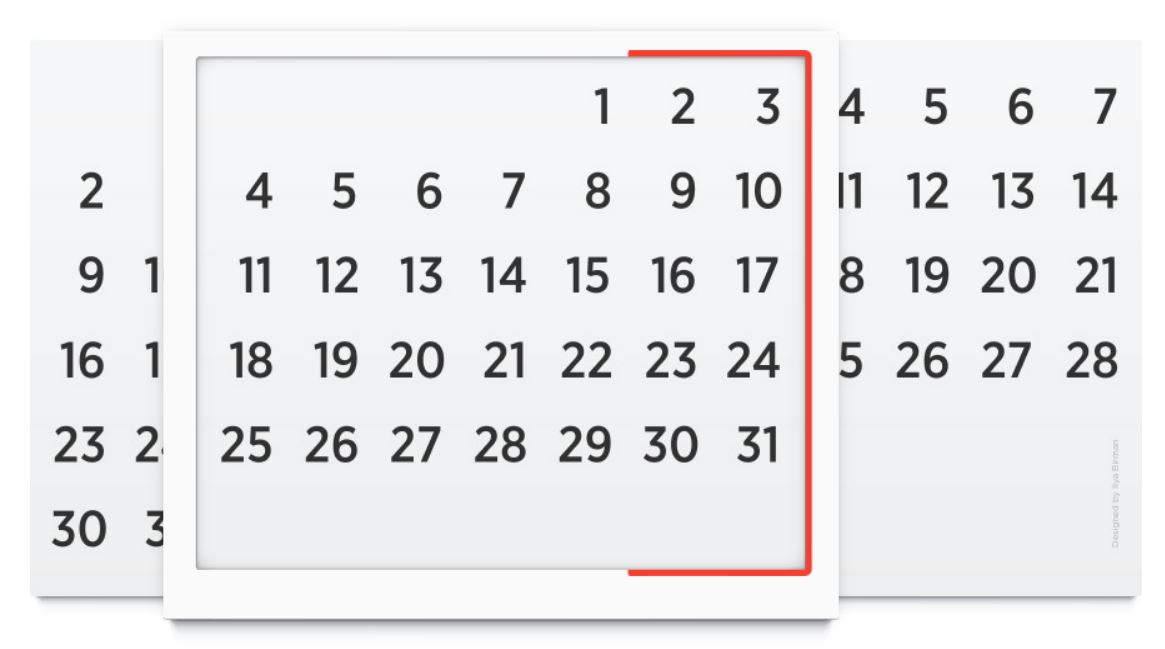40 Questions, Forever Calendar, How to Make a Stew and Solar Protocol
#43 of 10+1 Things|📍Delhi | 14° C

⚡ Welcome to #43 of 10+1 Things!
I was surprised by the number of coffees I got last week!
Your support($1 or ₹75) keeps this newsletter up and running.
This edition of 10+1 Things is delivered in partnership with Meco, the best new app for newsletter reading!
Meco is a distraction-free space for reading and discovering newsletters, separate from the inbox. Add your newsletters in seconds and liberate your inbox. It’s completely free and I've enjoyed using it for the last couple of weeks!
Here are 10+1 Things that I thought were worth sharing this week:
❓ 40 Questions
Inspired by the Proust Questionnaire, Stephan Ango has shared a list of 40 questions for the current decade. Stephan has tried to create this set of questions with an agenda to revisit them in 2030. These are simple, yet personal philosophical questions that I enjoyed going through. My top 3 from the list are:
What was your greatest waste of time?
If you could give everyone in the world one gift, what would it be?
When and where were you happiest?
☀️ Solar Protocol
The solar protocol is a website that is hosted across a series of web servers that are powered by solar energy. These servers are set across the world timezones and the website is delivered from a server that is receiving the most sunlight. This is contrary to the typical web scenario where a user is served with a webpage from a server that is closest based on geography. The solar protocol website might load slowly at times, but the website only uses naturally available energy, and thus is optimized to be online as much as possible with free energy. The creators of the project started the project to get people to think about the huge energy usage of servers and heavy websites of the modern web, some topics that are never discussed.
💰 How to Send $1 to Everyone on Earth
The 'How do I find Purpose' discussion link in last week's newsletter was one of the most clicked ones and I thought of sharing another one that sparks interesting discussions on ways to send $1 to everyone on earth. Even if you're a billionaire with $8 billion in your bank account, sending everyone $1 is not as easy as you may think. Addressing people who do not have a bank account, finding bank account details, and fighting corruption to ensure that $1 reaches everyone are some of the few challenges you might face!
An interesting comment that caught my attention:
100 years ago, you could have just set the money on fire and had a pretty similar net effect (reduce the money supply, increase the value of the remaining money for everyone else). There are some caveats. Money-burning benefits aren't distributed evenly - rich people gain more than poor people since they have more of the remaining money. You also have to already have at least some money to benefit from it.
📅Forever Calendar
Are you sick of flipping your calendar every month and replacing it every year? ‘Forebruary’ is an adjustable minimalistic evergreen calendar designed by Ilya Birman. With Forebruary, all you have to do is to adjust the frame such that it matches the weekly arrangement of the current month you are in. There are no labels for months or days while weekends are highlighted in red. The only downside is that you'll still see 31 days in months that have 30 or fewer. Nevertheless, an interesting design and you can play with the design on his website.
🔗 Wiki Speedruns
Wikipedia Speedruns is a simple in-browser game using Wikipedia articles. At beginning of the game, you will be given a starting as well as ending Wikipedia article. The goal of the game is to navigate from the starting article to the ending article just by using the article wikilinks. You can't use the find-in-page tool in your browser but can use any link on the article. The game is quite interesting and you can even play without registering!
I played a quick game where the starting was 'Geometry' and the ending was 'Dhaka'. Here's the path I took:
[ "Geometry", "Euclidean geometry", "Geometry", "Indian mathematics", "Indian subcontinent", "Bengali language", "Bangladeshis", "Bangladesh", "Dhaka" ]
🚕 An Unforgettable Cab Ride
'The Cab Ride I’ll Never Forget' is a touching story by Kent Nerburn, based on his life experience as a cab driver in the early 1980s in Minnesota. The story details a life-changing experience he had while picking an old woman and demonstrates the importance of how even the smallest acts can have extraordinary power. I'm not gonna spoil the story here, but I'm glad that I read it.
What if I had refused to take the run, or had honked once, then driven away? What if I had been in a foul mood and had refused to engage the woman in conversation? How many other moments like that had I missed or failed to grasp?
📚 Jonathan Livingston Seagull
I rarely read or enjoy fiction, but a friend recommended the book 'Jonathan Livingston Seagull: A Story Paperback' by Richard Bach and I thought of giving it a go. It's an interesting short read (<100p) and I enjoyed reading it. The story follows the story of Jonathan Livingston, a seagull frustrated with the meaningless ordinary life, trying hard to learn all about flying. The book is a motivational fable sort of like the Alchemist on personal reflection, freedom, and self-realization. If you want a break from the rush of information from non-fiction books, give it a go!
An interesting quote from the book:
“Don’t believe what your eyes are telling you. All they show is limitation. Look with your understanding. Find out what you already know and you will see the way to fly.”
-Resurfaced using Readwise(It's FREE)
Last Week's Read: The Hidden Language
🧵 Analogies vs. First Principles
In an interesting thread, Tomas Pueyo has explained when we should use analogies and first principles. Analogies work in situations where the more you've seen something, you can predict what will happen next without understanding it completely. Cooking is an example of such a situation where you can get the desired result by blindly following the recipe even if you don't know much about cooking. But this theory break downs in novel situations like when you want to create a new dish or when a new virus appears. The only way to predict what will happen next in such cases is by mastering the fundamentals i.e. reasoning from first principles.
📷 The Real Toy Story

This week I've enjoyed exploring the art series titled 'The Real Toy Story' by Michael Wolf, a homage to china’s factory workers who produce most of the cheap mass-produced plastic toys in the world. Through this series, we are able to peek into these factories that nobody has explored and meet some of the faces behind these toys that are shipped to millions around the world. For his art installation, Michael collected 16,000 made in china toys across California and turned them into gigantic installations along with the portraits of the factory workers who produced them.
🎬 How to Cook a Stew?
I somehow came across this interesting video from English Heritage that shows how a stew was made during the 11th-century Battle of Hastings. It's an interesting stew recipe with hare, bacon, carrots, onions, cider, and barley. I loved the fact that they used white & purple carrots as the orange carrots we use today were not present in the 11th century. I'm thinking of making it using chicken instead or hare soon!
🌏 Some Interesting Metrics
This last section of the newsletter explores a thought I had, an idea I'm exploring, a dream I experienced, or something interesting that I observed:
I analyzed the subscriber data from Substack and found some insightful observations that I thought I would share:
10+1 Things is read across 46 US states and 87 countries in the world.
Among countries USA, India, the UK, Canada & Australia are leading whereas, in the USA, it's California, New York, Washington & Texas are the districts that are leading.
More than 10% of my subscribers are with five stars, having read all or most of your posts. This made me think about the 1000 true fans post by Kevin Kelly!
I have a whopping number of 60+ subscribers from Morocco! I do not have an explanation for this.
Coming to my neighboring countries, I have 7 subscribers from china, 2 from Bangladesh,1 each from Bhutan & Pakistan, and zero subscribers from Nepal, Srilanka & Myanmar.
Barring Pakistan, I do not have any subscribers from 'stan' countries like Kazakhstan, Tajikistan, Uzbekistan, Kyrgyzstan, Turkmenistan, or Afghanistan which was interesting to observe!
Are you a Substack writer? I'm building a web-based tool that lets you visualize your subscriber data with some interesting insights. I will have a demo ready by next week and would love to hear your feedback on the same. If interested, please reply to this email.
📣 Shoutouts
2-minute data stories narrated with charts, for tech professionals and investors!
The Sample was designed to amplify independent writers who you haven't heard of already.
Lose weight by learning to eat mindfully with this tool
That’s 10+1 Things for the week.
This newsletter is free, but not cheap. It takes a lot of effort and time from my end (7~8 hours) to deliver this newsletter every week. You can help me in keeping it going by forwarding it to someone you like, leaving a testimonial, buying me a coffee ($1 or ₹75), sending me some crypto, visiting my blog or following me on Twitter.
See you next week!
With Love,
Rishi
"That thing that made you weird as a kid could make you great as an adult — if you don’t lose it" - Kevin Kelly






